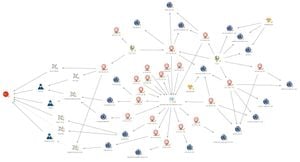The U.S. Supreme Court recently addressed the contentious case involving tech giant Nvidia, which has been mired in legal challenges surrounding alleged securities fraud. Nvidia, known for its influential role as the leading supplier of artificial intelligence hardware, was accused of misleading its investors about the extent to which its sales relied on the highly volatile cryptocurrency market.
During the heating arguments on Wednesday, justices expressed their concerns over the particulars of the case, which stems from a class-action lawsuit initiated by E. Ohman Jör Fonder AB, an investment management firm based in Stockholm. The plaintiffs allege Nvidia and its CEO, Jensen Huang, downplayed the significance of revenue derived from cryptocurrency purchases during 2017 and 2018. This misinformation allegedly inflated Nvidia's stock price, resulting in heavy losses for shareholders when the truth surfaced as profits and stock valuations tumbled.
The legal spat is particularly significant because it stands to test the robustness of the Private Securities Litigation Reform Act of 1995, legislation aimed at discouraging frivolous lawsuits. With their stock plummeting as the cryptocurrency boom fizzled, Nvidia argued for the lawsuit’s dismissal, claiming it didn’t meet the stringent requirements for securities claims established under this law.
Justice Elena Kagan raised eyebrows during the proceedings, questioning the clarity of the legal issues presented. “It just seems to me... you’re asking us to engage in a kind of analysis... we are not very good at,” she remarked to Nvidia's attorney, Neal Katyal, indicating skepticism about whether the court had the requisite expertise to navigate the technical details at play.
Other justices also voiced concerns. Justice Ketanji Brown Jackson highlighted the possibility of imposing too great of a burden on plaintiffs. “I guess my concern is... you appear to be requiring plaintiffs to actually have the evidence in order to plead their case,” she stated. Without proper evidence—often unavailable until later stages of litigation—finding plaintiffs’ claims credible could potentially stifle legitimate grievances.
Investor skepticism mounted against Nvidia following reports late last year, which indicated the company's chip sales for cryptocurrency mining had dramatically skewered its expected revenue. The plaintiffs alleged Nvidia concealed this reliance on crypto during key periods, impacting their investment decisions. These claims are exacerbated by the 28% drop Nvidia experienced when its financial results fell short of projections amid declining cryptocurrency profitability, particularly as Bitcoin and Ethereum values waned.
Interestingly, Nvidia had settled previously with U.S. authorities, paying $5.5 million to avert federal charges concerning inadequate disclosures on its crypto dealings. This settlement, which didn’t carry any admission of guilt, slyly indicated regulator concerns about Nvidia’s communication to investors.
One pertinent dimension of the case is the repercussions it may have on the ability of private litigants to hold corporations accountable for perceived securities fraud. Justice Brett Kavanaugh, expressing apprehension, commented on the potential ramifications of the Ninth Circuit's decision to revive the lawsuit. He noted outside advocacy groups feared it might establish new pathways for plaintiffs circumventing existing legal standards.
The discussions have drifted toward whether or not the court should step back and maintain the legal barriers set forth by Congress, aiming to protect companies from unsolicited or groundless lawsuits. A broad ruling favoring Nvidia might bolster corporate immunity to securities litigation, which could lead investors to lose confidence and potential recourse when faced with corporate malfeasance.
Critics of this trend argue it could prioritizing companies' interests over those of shareholders, tilting the balance of investor protections significantly. Such outcomes are gravely concerning, especially as public consciousness pivots toward holding corporations stand accountable amid revelations of unethical or misleading practices.
The lawsuit's outcome, due early summer, is likely to reverberate through the technology and finance sectors, either affirming the courts’ ability to protect investors or opening the floodgates for companies to evade responsibility under the guise of harsher legal standards. With Nvidia becoming synonymous with the modern AI boom and valued at $3 trillion, the outcome could reshape investor confidence markedly.
Keep your eyes peeled as the story develops; with both the public and private sectors intensely interested, it’s sure to be one for the books!



